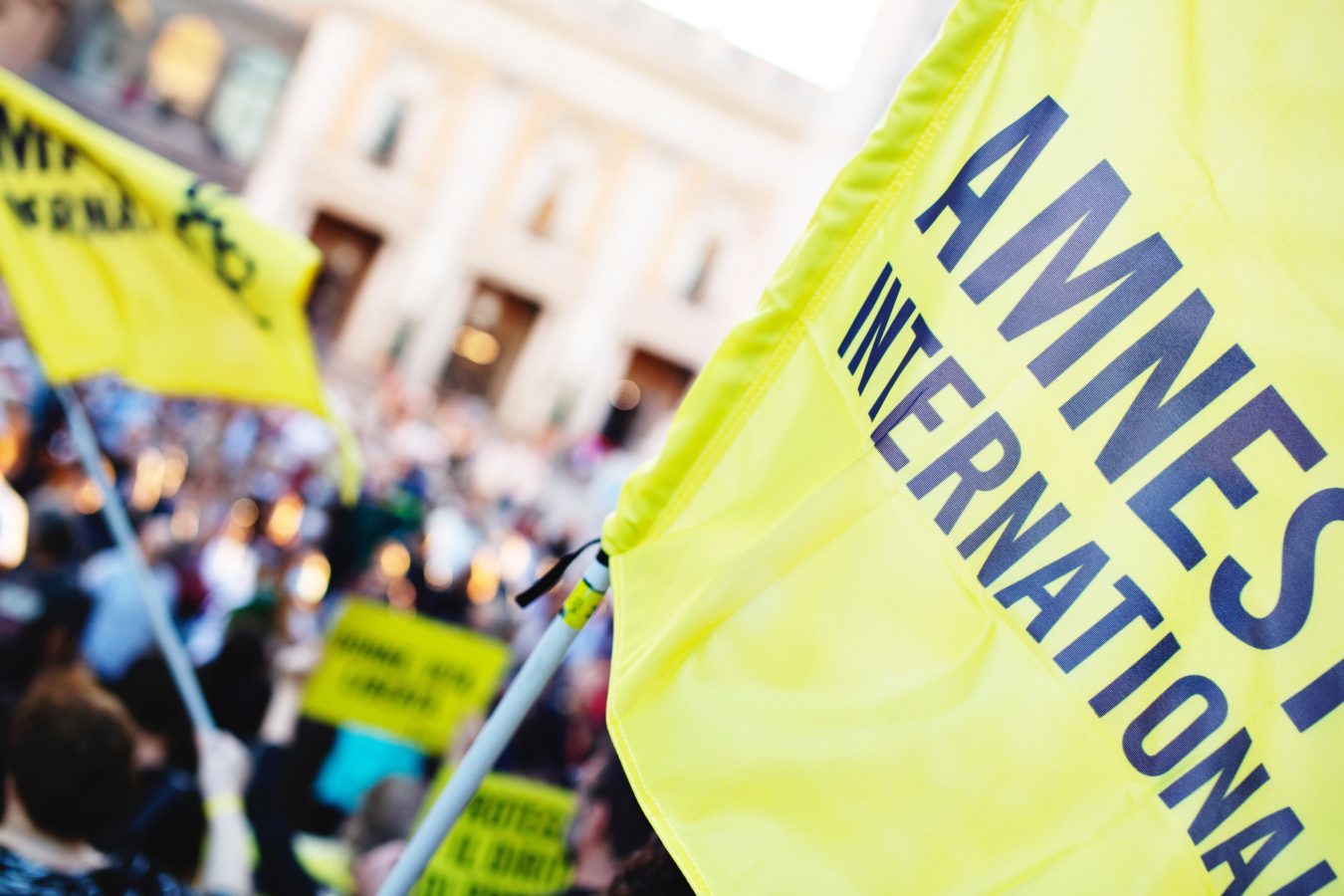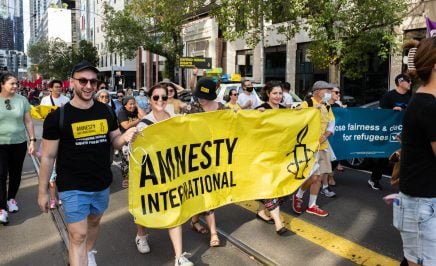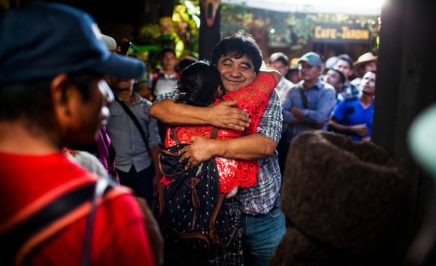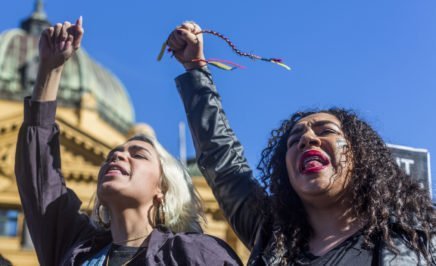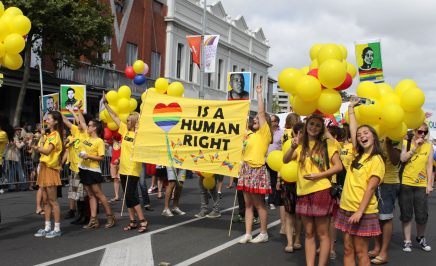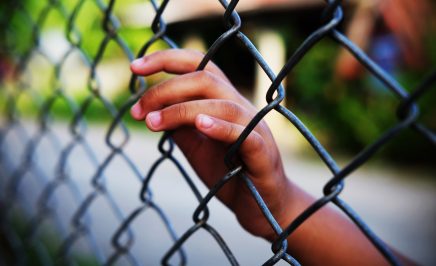December 10 is Human Rights Day. It marks the adoption of the Universal Declaration of Human Rights in 1948 — a list of the rights everyone around the world should enjoy. 74 years later, the fight to uphold our rights is far from over.
Mahsa Amini, the Religious Discrimination Bill, #GameOver. This year we saw freedom and equality continuously under threat, and people around the world courageously fighting for the recognition of their fundamental rights.
Despite the declaration’s international credibility, the standards outlined in it are sometimes difficult to enforce. That’s why it’s important for ordinary people to speak out against human rights violations whenever they happen — this is how we keep governments and leaders across the world accountable and we move closer to a world where human rights are enjoyed by all.
Every action you take helps to free the wrongfully imprisoned, rewrite unjust laws and hold the powerful to account. Together our voices are powerful.
Here are some of the human rights wins of 2022:
January
- Iranian human rights defender Atena Daemi was released after five years imprisonment under trumped-up charges for her courageous advocacy to end the death penalty. More than 22,000 Australians sent solidarity messages to Atena and campaigned for her release during Write for Rights 2018.
I’d like to thank you for your empathy, solidarity, support and struggles all these years which have been by family’s moral support and my inspiration. I hope that we’ll achieve our first and last wish, which is freedom, public awareness and the realisation of human rights.
Atena Daemi
February
- The Religious Discrimination Bill was shelved after months of campaigning, direct advocacy with key politicians and through working in coalition with Equality Australia and other LGBTQIA+, disability and health organisations. The submission drafted by Amnesty’s New South Wales Rainbow Group was a powerful advocacy tool in achieving this outcome.
Sign the petition to call on the government to implement a Human Rights Act so that basic human rights are never up for debate. A national-level protection will mean everyone’s rights are protected so that we may live with the dignity and respect we all deserve. Learn more about our LGBTQIA+ rights campaign work.
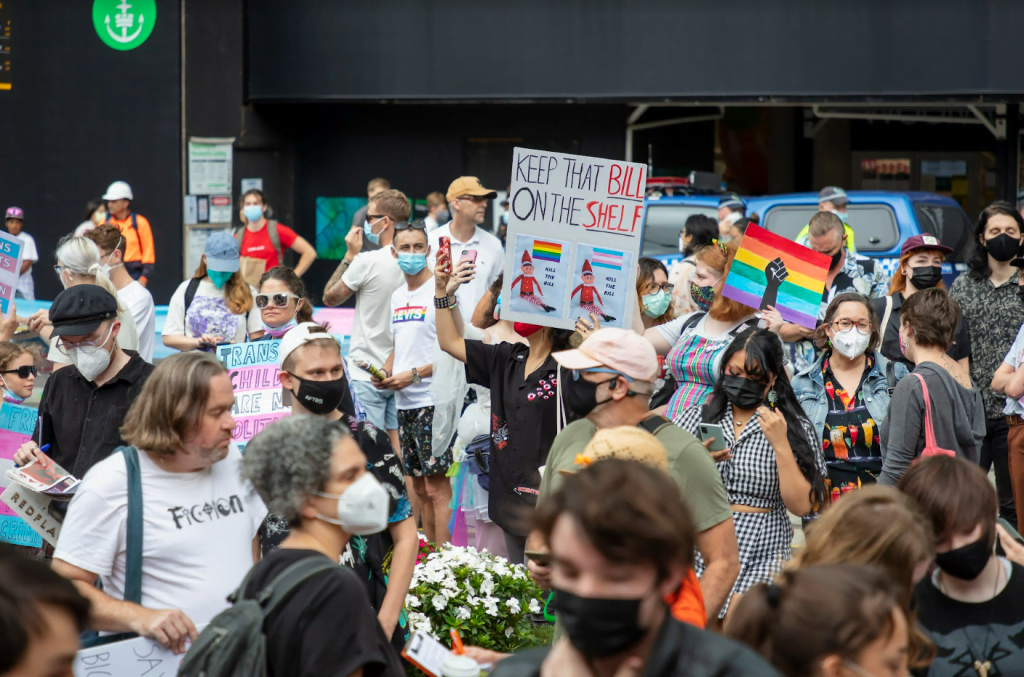
March
- The Australian government accepted New Zealand’s long-standing offer of resettling refugees trapped in Australia’s cruel offshore detention regime. Amnesty started campaigning in 2019 and it’s finally #GameOver. Accepting the New Zealand offer is a small step to recovering Australia’s humanity, and allowing refugees to live in safety and get on with their lives.
This is absolutely a historical moment in Australia. The power of people is stronger than politicians. The government couldn’t resist this powerful pressure. Our consistency made this happen.
Mostafa (Moz) Azimitabar, former refugee held in offshore detention
- The Australian federal budget included an increase in Australia’s humanitarian program to offer an additional 16,500 places over four years to those fleeing the Taliban in Afghanistan. Amnesty’s advocacy alongside communities from Myanmar, Afghanistan, and Ukraine to urge for additional humanitarian places for people seeking safety and the supporting public pressure have been recognised by the Home Affairs and Immigration Ministers.
Sign the petition to hold the new Albanese Government to their promise to increase the Refugee and Humanitarian Program. Learn more about our Refugee Rights campaign work.
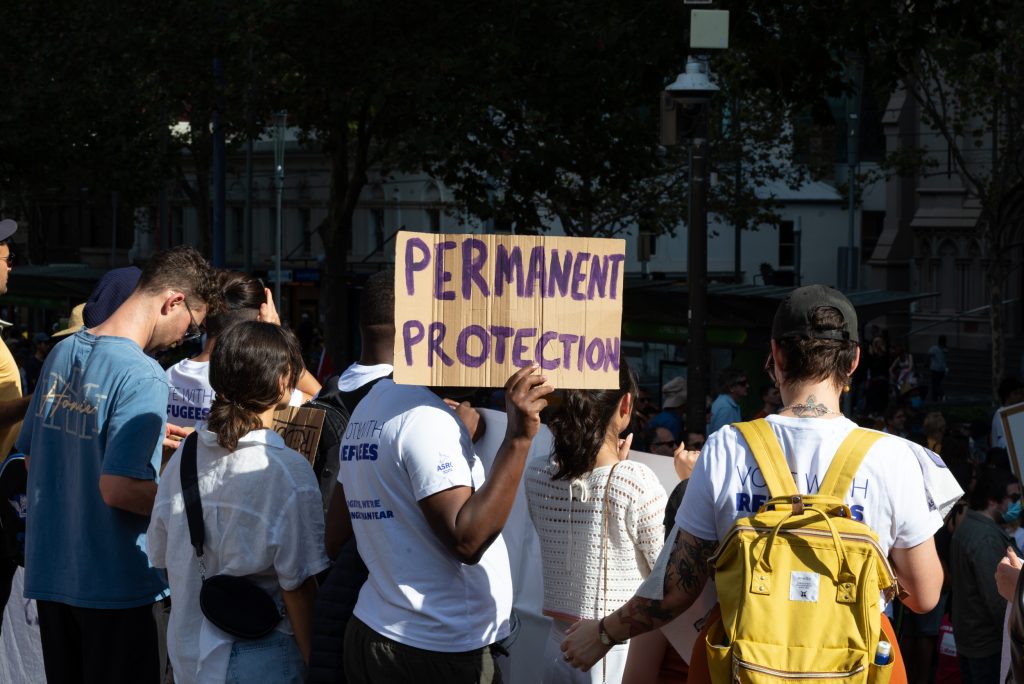
- Bernardo Caal Xol, an Indigenous Mayan environmentalist and prisoner of conscience in Guatemala, was freed early after being wrongfully imprisoned for speaking out against the destruction of rivers sacred to his people. 21,000 Australians contributed to 511,000 global actions demanding his freedom as part of Write for Rights 2021.
For Write for Rights 2022, we’re taking action for brave individuals from around the world who have all paid a great price for speaking truth to power. Learn more about Amnesty’s Write for Rights campaign.
- In South Sudan, Magai Matiop Ngong, who was a 15-year-old school student when sentenced to death in 2017, was released after the High Court ruled he was a child at the time of his alleged crime. Magai grabbed global attention through Write for Rights 2019, where almost 18,000 Australians contributed to over 750,000 global actions calling for his death sentence to be commuted.
Learn more about our End the death penalty campaign work.
- British-Iranian charity worker Nazanin Zagari-Ratcliffe was released after being unjustly imprisoned on trumped-up national security charges, a familiar tactic in Iran where she was detained. She was separated from her husband and daughter for six years. More than 29,000 Australians took action for Nazanin, contributing to more than one million actions across the global Amnesty movement.
Learn more about our campaign work for individuals at risk.
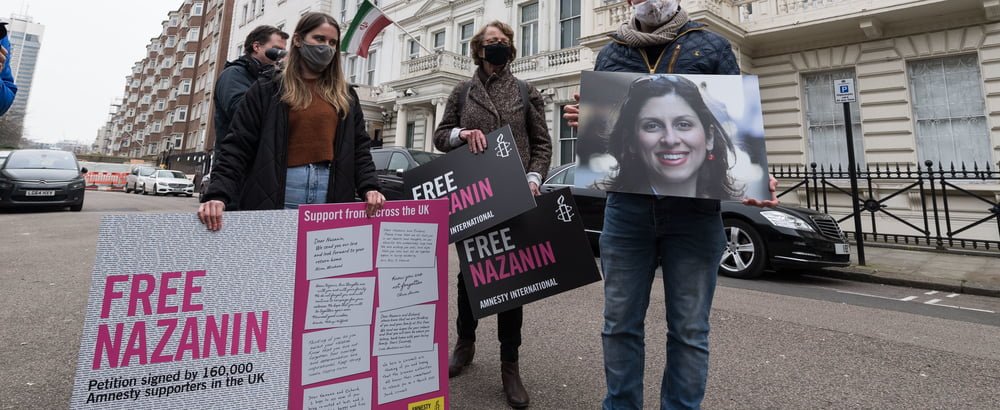
April
- In a win for the global abolition of the death penalty, Papua New Guinea became the latest country to abandon the punishment, 30 years after its reintroduction in 1991.
Learn more about our campaign work to end the death penalty.
- Egyptian housing rights researcher Ibrahim Ezz El-Din was released after nearly three years in detention as part of the worst crackdown on freedom of expression in Egypt’s recent history. After being forcibly disappeared for 167 days, Ibrahim finally ‘appeared’ after being brought to the courts in Cairo. Amnesty will continue fighting for the release of thousands of other human rights defenders jailed on politically motivated charges.
Learn more about our campaign work for individuals at risk.
July
- In a win for climate justice, the United Nations General Assembly adopted a resolution recognising “a clean, healthy and sustainable environment” as a universal human right. It provides a tool for people to use to pressure states to recognise the right in their national legislation, as well as for environmental human rights defenders who work tirelessly to protect their fellow human beings from the impact of environmental destruction.
Sign Amnesty’s petition, calling on the Australian Government to take real climate action now. Learn more about our climate justice campaign work.
August
- Ahmed Samir Santawy, a women’s rights and reproductive rights researcher and prisoner of conscience, was released from prison after being given a presidential pardon. Ahmed was arrested for spreading “false news” and sentenced to three years’ imprisonment based solely on social media posts criticising human rights violations in Egypt. Over 10,000 people in Australia signed the petition demanding Ahmed’s release, and almost 5,000 people called the Egyptian embassy to put further pressure on authorities – and it worked.
Learn more about our campaign work for individuals at risk.
September
- The ACT was the first jurisdiction in Australia to commit to work to raise the age of criminal responsibility from 10 to 14. While they haven’t legislated this important reform yet, we’re continuing to pressure them to hold firm to their commitment. The Northern Territory have just passed legislation to raise the age to 12, and while it’s not the win we’ve been campaigning for, it’s a huge step in the right direction. It’s an example to all states and territories that there’s nothing stopping them from acting in the best interests of children and the community, and raising the age tomorrow. Amnesty has campaigned to #RaiseTheAge since 2018 — it’s because of the compassion and determination of supporters that the ACT have made this step and it’s time for the rest of the country to follow suit.
Sign the petition to call on all remaining state and territory governments to commit to raising the age to 14. Kids belong in school and community, not prison. Learn more about our Indigenous justice campaign work.
October
- The Albanese government committed to its Federal election promise to fund justice reinvestment and First Nations-led diversion programs and help keep kids out of the criminal legal system. The federal funding sees a commitment of 81.5 million dollars and It includes investing in up to 30 communities to establish initiatives that address the root causes of incarceration and Aboriginal deaths in custody. A welcome start in addressing the overrepresentation of First Nations people in prisons.
Sign the petition to support keeping our kids safe from prison and out of the criminal justice system for good. Call on the government to invest in community-based solutions that work. Learn more about our Indigenous justice campaign work.
- The Albanese government released the National Plan to End Violence Against Women. The Action Plan was a lot stronger than the Morrison government’s, and includes a lot of what Amnesty and other organisations asked for during its development: preventative education, intersectional perspective, and informed by the voices of victim survivors. The Albanese government now needs to fully fund the plan and implement their commitment to a separate self-determined national action plan for First Nations women.
- Ahead of the 2022 World Cup in Qatar, the Socceroos release a video calling for reforms to improve human rights in Qatar. The video mentions briefings the Socceroos held with Amnesty, and was the first time a team has call for reforms, to improve the human rights of migrant workers and the LGBTQIA+ community in Qatar. It’s time for FIFA to compensate the migrant workers who’ve made the World Cup possible.
Learn more about our Indigenous justice and Women’s rights campaign work.
November
- Russian court upheld the acquittal of activist and artist Yulia Tsvetkova for ‘pornography’ charges for posting drawings of the female body and an LGBTQIA+ family online. Yulia was facing up to six years in prison under Russia’s deeply homophobic ‘gay propaganda’ laws. Amnesty supporters around the world came together to ensure her freedom, with over 17,000 calling for charges to be dropped.
Learn more about our LGBTQIA+ rights campaign work and Women’s rights campaign work.
The acquittal of Yulia marks a rare and welcome triumph of sanity and justice over remorseless repression. In a country where state-sponsored homophobia and misogyny are the norm, Tsvetkova’s trial was a landmark case.
Marie Srtuthers, Amnesty International’s Director for Eastern Europe and Central Asia
- The UN established a landmark fact-finding mission to investigate and ensure accountability for human rights violations in Iran related to the protests which erupted after the death in custody of Mahsa Amini on 16 September, 2022, especially with respect to women and children. The protests have been met with a deadly crackdown by security forces using unlawful force. More than one million people signed Amnesty’s petition to drive this win, including 10,000 in Australia. We called on Australia to support the motion, and Australia co-sponsored it. This important and long overdue step shows that the cries of people in Iran for justice have been heard – authorities can no longer commit crimes under international law without fear of consequences.
Learn more about our right to protest, women’s rights and crisis response campaigns.
- After three decades of campaigning by countries in the global south most affected by climate change, a Loss and Damage facility was established at COP 27. This is the first step in addressing people whose human rights have been harmed by climate change – real financial support and sets in motion a process to redress historical injustices. Amnesty worked tirelessly with a wide range of groups to amplify the calls of the global south in securing this outcome. Now it’s up to wealthy countries to step up and ensure the fund is adequately resourced.
Learn more about our climate justice campaign work.
December
- The Western Australian government confirmed that it will move to ban conversion practices, which 10% of LGBTQA+ Australians are at risk of across the country. This win wouldn’t have been possible without the tireless work of survivor advocates who have been leading this charge, including Ending Conversion Practices WA and SOGICE Survivors, as well as over 43,000 Australians who have signed Amnesty’s petition.
Sign the petition to join the call to put an end of conversion practices and stand with survivors in Australia. Learn more about our LGBTQIA+ rights campaign work.
- The Queensland government has introduced legislation to reform the state’s cruel and outdated birth certificate laws thanks to tireless advocacy by many in the trans community. If the Bill is passed, trans and gender diverse people will no longer be required to undergo surgery in order to have their birth certificate accurately reflect their gender.
Sign the petition calling for better recognition of our diverse community and to ensure everyone is equally deserving of respect and dignity, regardless of gender. Learn more about our LGBTQIA+ rights campaign work.
What’s next for Amnesty Australia
Australia played a crucial role in developing the Universal Declaration of Human Rights, but today there are almost no laws that protect our human rights. Racism, discrimination and other issues for women, the LGBTQIA+ community and asylum seekers continue to plague our society.
At their core, human rights are about respecting the dignity of every one of us. Human rights matter because someone’s quality of life should not be determined by factors beyond their control – race, gender, socio-economic background, sexuality or age.
A Human Rights Act would help prevent human rights violations, provide a powerful tool to challenge injustices, and help create respect for human rights in our community, ensuring we are all free to exercise our human rights
Nikita White, Amnesty International Australia
We’re calling on the Albanese government to put human rights – both here at home and abroad – at the heart of all policy decisions and to establish Australia’s place in the world as a human rights leader as well as a free, fair and caring country.
Amnesty International is a global movement of 10 million people standing up for justice, freedom and equality. Together, our voices challenge injustice and are powerful enough to change the world. Find out more about what we do, our impact and our current campaign cases.
